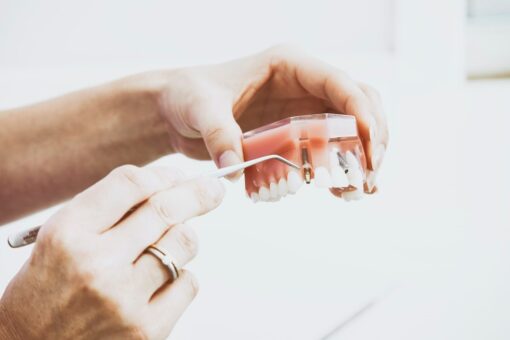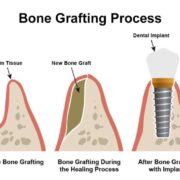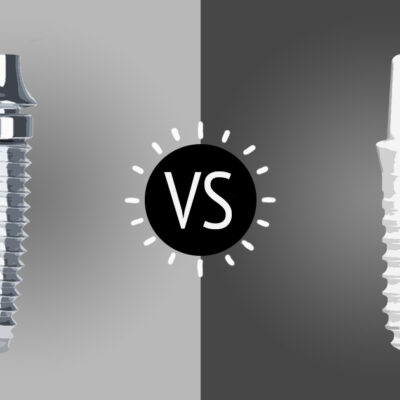Dental implants are a popular and effective way to replace missing teeth. They’re made of titanium, a material that fuses to the bone, and they can last a lifetime with proper care. Most people who get dental implants have a successful experience and don’t experience any problems. But as with any surgery, there are potential risks and complications. One of the most common complications is bleeding. In this article, we’ll discuss what’s normal and what’s not when it comes to bleeding after dental implants. We’ll also give you some tips on how to care for your dental implants to reduce your risk of complications.
Dental implants are a popular way to replace missing teeth.
Dental implants are one of the most popular ways to replace missing teeth. They’re most commonly used to replace a single tooth, but they can also be used for a full upper or lower denture. Dental implants consist of three parts: an implant, an abutment, and a crown. The implant is a metal rod that’s surgically placed into the jawbone. The abutment is a screwed-on piece of metal that connects the implant to a crown. The crown is a tooth-shaped cap that’s made of metal, porcelain, or a combination of both.

Implants are made of titanium, that fuses to the bone.
Dental implants are made of titanium, a metal that fuses to the surrounding bone. After the implant is placed in the jaw, it’s covered with a soft tissue flap called a mucoperiosteal flap. This flap is torn away after a few days to expose the implant to the surrounding bone. Your body then creates new bone around the implant, fusing it to the implant. This process often takes several months, with the majority of patients having full integration between the implant and the surrounding bone by three months after surgery.

How much bleeding is normal & how do i stop it?
- If biting down on gauze or a caffeinated tea bag is doing nothing to curb excess bleeding, or if the bleeding persists for more than 72 hours, you should contact your dentist right away. Excessive and prolonged bleeding can be a sign of conditions such as mucositis and peri-implantitis, which are complications or infections from the implant procedure.
- You should also take precautions in your aftercare to make sure you are avoiding habits that could be increasing the bleeding you are experiencing. And You should avoid all forms of suction, including sipping through a straw, spitting, and smoking, because these can all dislodge blood clots.
- You should also not consume hot foods or drinks, which can increase blood flow. Applying a cold compress to your jaw around the area of the implant will reduce swelling and bleeding. Also, keep in mind that more complicated procedures, like gum grafts, may produce excess bleeding. However, you should still consult with your dentist if bleeding is persistent and excessive.
Bleeding as a sign of peri-implantitis
Peri-implantitis is very similar to mucositis and even presents with all of the same symptoms. However, the additional symptom of bone destruction points to the presence of peri-implantitis. Both mucositis and peri-implantitis are caused by inflammatory reactions, but only peri-implantitis is an infection.
It is not typically painful, but your implant may feel loose and you may feel pain when chewing. If left untreated, it can lead to rare dental implant failure. Peri-implantitis is treated with surgery such as an erbium laser or bone graft.

In severe cases, the implant may need to be removed and replaced with a bone graft to encourage bone growth and rebuild soft tissue. It may still be possible to put in another dental implant if there is adequate bone density within 90 days.
Most people who get dental implants have a successful experience.
Most dental implant patients have a successful experience. In fact, dental implants are more successful than other tooth replacement procedures. In general, the more natural your new smile looks, the more likely you are to be satisfied with your dental implants and less likely to experience complications. Your ability to chew and your general lifestyle and habits will also be a factor in how successful your dental implants are. For example, if you’re a heavy smoker, your implants are less likely to be successful.
One of the most common complications is bleeding.
One of the most common complications that can occur after dental implants are bleeding often called implant bleeding. This happens when blood seeps out of the implant site and pools in the implant pocket. It’s a sign that the bone is trying to fuse to the implant but hasn’t quite gotten there yet. It’s normal to have some blood in the implant pocket while the bone is healing. Your dentist might put a gauze pad or a dry cotton swab in the implant pocket to soak up the blood and suggest that you rinse around the implant site with warm water, salt water, or mouthwash several times a day.
What’s normal and what’s not when it comes to bleeding after dental implants?
Bleeding after dental implants is normal- All of the blood in the implant pocket is normal, but if you see blood in your saliva, that’s not normal. Bleeding in the saliva can be a sign of infection or an allergic reaction to the implant. If you see red or pink saliva, your dentist should examine you to see if you have an infection or a reaction to the implant.
Swelling around the implant site is normal- While the implant is healing, it may swell and become sensitive. Swelling around the implant site is normal and will go down within a few months after surgery. If your implant site is swollen and painful, take a pain reliever as recommended by your dentist, but don’t take any ibuprofen-containing products such as Advil or Motrin. These can cause increased bleeding around the implant site.
A change in the color of the tissue around the implant- The tissue around the implant will change color from pink to dark red and then to normal skin color over time.
A change in the temperature of the tissue around the implant – The tissue around the implant will feel hotter than usual for a few months.
How to care for your dental implants to reduce your risk of complications?
There are a few things you can do to care for your dental implants to reduce your risk of complications. First, make sure you’re diligent about following your dentist’s instructions. If your dentist recommends rinsing with salt water or mouthwash, do it. If your dentist recommends you avoid certain foods, do it. And If your dentist recommends taking certain supplements, like vitamins B12 and C, do it. Second, follow a healthy lifestyle and diet. Stay away from tobacco and alcohol, which can reduce your bone density and affect your healing. Stay on top of your dental hygiene and schedule regular dental cleanings and dental examinations.






